
21 Mar 2025

Tiempos circulares
No overview found

Oscar Serrano
Ángel Abus

21 Mar 2025

No overview found
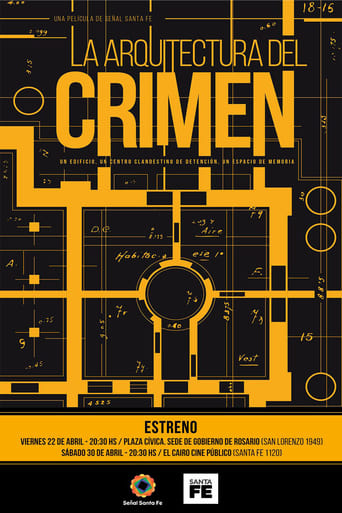
22 Apr 2016

At the end of the last civil-military dictatorship, a camouflage operation took place in the Information Service, an office of the former Rosario Police Headquarters that operated as a clandestine detention center in the heart of the city. This architectural intervention, not recorded in the plans, obscures the survivors' accounts and hides the traces of crimes against humanity. Drawing on images, previously unpublished archives, and survivor testimonies, the documentary explores the scars of political repression and highlights the importance of preserving memorial spaces to ensure the transmission of fundamental events in our contemporary history.
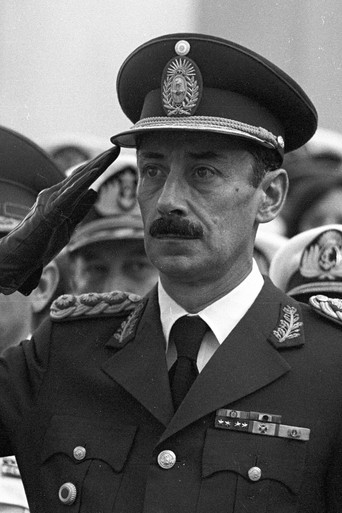
04 Dec 2020

Faced with a lack of prosecution of those accused of crimes against humanity committed during Argentina’s military dictatorship, family members and descendants of the country’s estimated 30,000 disappeared took action. In the mid-1990s, they began gathering outside of accused perpetrators’ homes and workplaces to publicly shame them and raise awareness about the government’s systematic and brutal targeting of its people — and how it had gone unpunished. The human rights group HIJOS (Sons and Daughters for Identity and Justice Against Forgetfulness and Silence) led and labeled this direct-action style of protest “escrache,” or exposure.
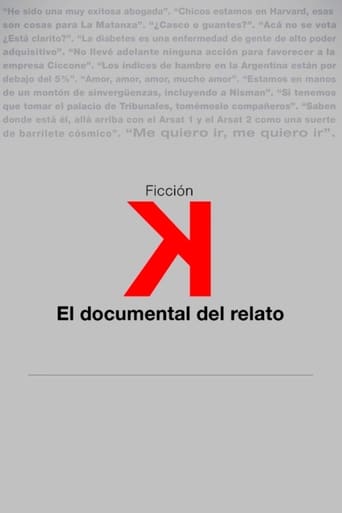
20 Dec 2015

Hard things were said. Incredible things were said. It is time to think about everything that was said. An account of Kirchnerism, a left-wing populist movement that ruled Argentina from 2003 to 2015, led by Néstor Kirchner (1950-2010) and his wife Cristina Fernández de Kirchner.
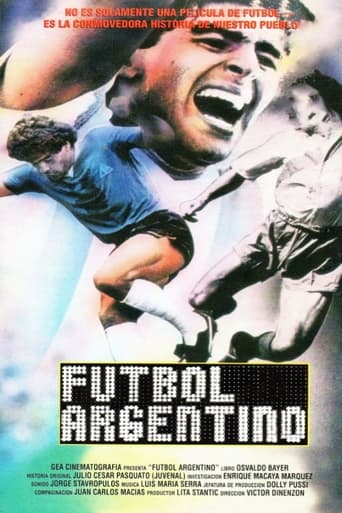
19 Apr 1990

A history of Argentine football, from its origins in the nineteenth century to the victory of the Argentine national team in the 1986 World Cup. The film uses valuable archival footage.
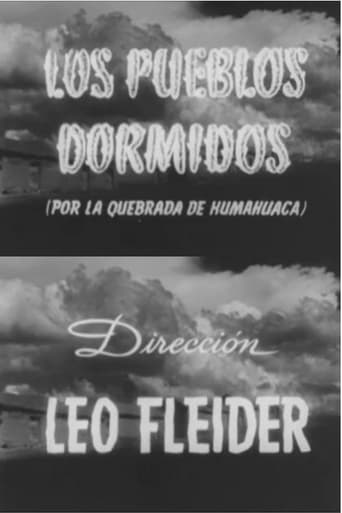
02 Jun 1947

Documentary about the kolla people living in North Western Argentina.
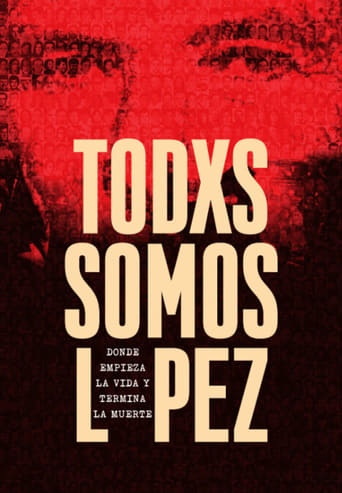
01 Jan 2017

A chronicle on the days without Jorge Julio López, key witness and complainant on the first trial on genocide in Argentina, dated in 2006. López, who had survived through concentration camps on the late seventies argentinian dictatorship, disappeared for the second time the day the court decision meant to condemn his kidnappers was about to be read.

31 Dec 1991

Documentary about Swedish emigration to Argentina via Brazil.
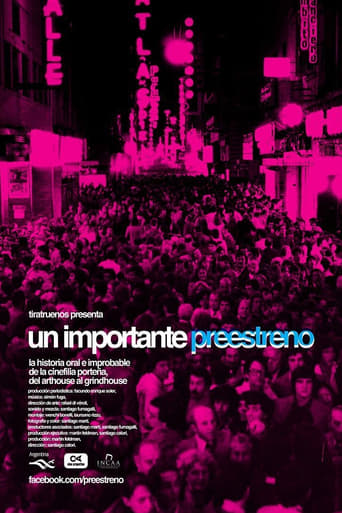
15 Sep 2015

For many years, Buenos Aires, Argentina, was one of the best places in the world for a film buff; but from the mid-sixties onwards, successive authoritarian governments shaped the will of the spectators, dictating what could be seen and what could not, so that the true cinema lovers, in their desire to watch films, had no choice but to embark on the most extraordinary and strange adventures.
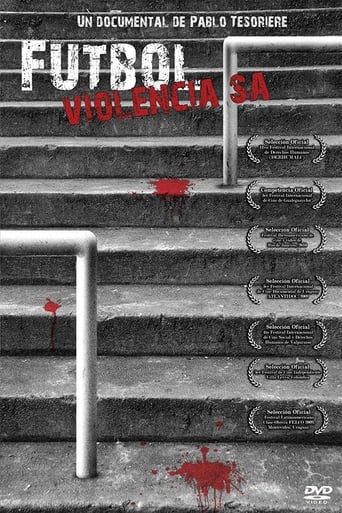
23 Apr 2009

No overview found
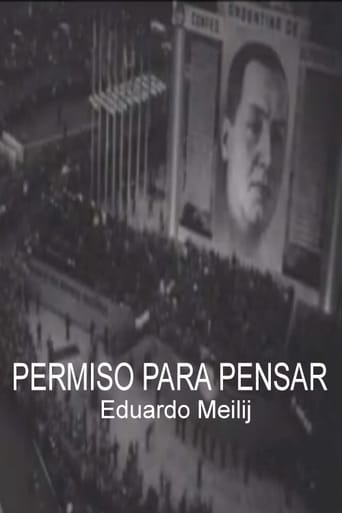
30 Apr 1989

No overview found
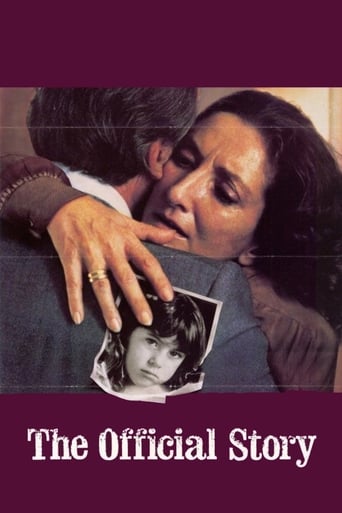
03 Apr 1985

Buenos Aires, Argentina, 1983. In the last and turbulent days of the military dictatorship, Alicia, a high school history teacher, begins to ask uncomfortable questions about the dark origins of Gaby, her adopted daughter.
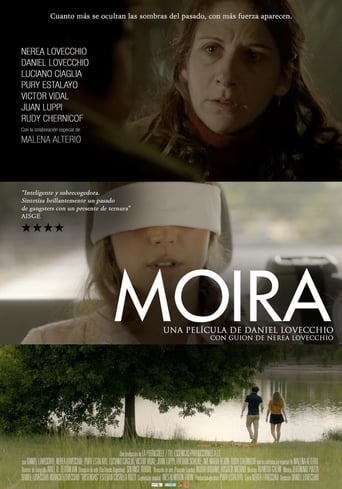
13 Dec 2019

Germán is Argentine by birth, but has lived in Spain for thirty years with his wife Rosa and his daughter Lucía. On the day of the young woman's birthday, he receives a phone call that will force him to confront his past in a violent way. This Argentine exile then has to deal with the terrible experiences he experienced during the Argentine dictatorship while overcoming his current family problems.
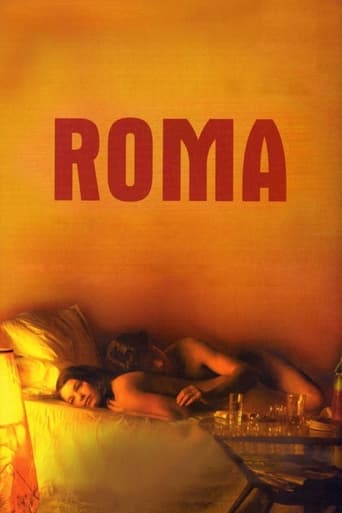
15 Apr 2004

Joaquín Góñez, a novelist in his sixties recalls his emotions, his wild years in Buenos Aires, the memories of old friends, the meaning of loyalty and the intimate relationship with his mother, Roma.
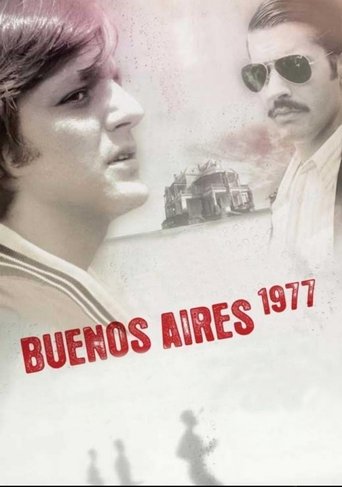
27 Apr 2006

The true story of four men who narrowly escaped death at the hands of Argentina's military death squads in 1977. Claudio Tamburrini is a goalie for a minor-league football team when he is abducted by members of the Argentine military police and taken to an unofficial detention center on the false suspicion that he is a terrorist. As he is tortured by intelligence agents looking for information he doesn't have, Tamburrini fully expects to be killed. After many sessions of brutal torture, Tamburrini and his fellow captives Guillermo and Tano are being readied for execution when, in a final desperate act, Tamburrini dives out a window during a rainstorm.

31 May 2001

After the May Revolution, Juan José Castelli has instructions to order the execution of ex-viceroy Santiago de Liniers. That put you at a crossroads with respect to your convictions.
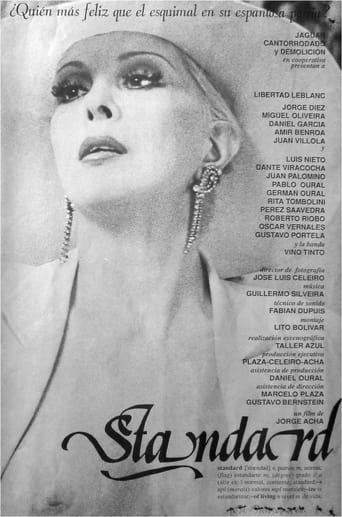
01 Jan 1990

Does someone remember that project of López Rega’s which, in 1975, thought up the construction of a Great Homeland Altar where all mythical figures of Argentine history could be in the same building? From San Martín to Perón on his pinto horse. From the Billiken stamps of our childhood to Libertad Leblanc’s tits of our teenage years. All clichés of Argentine-ness gathered under one roof. But the construction delays. Workers entertain themselves with their own masturbatory drives. Or is it that Argentina is an impossibie construction? Always about to begin. always displaying great projects, great plans that never come to fruition. A second-rate country that hides its fundamental vacuity behind monuments. in Acha’s cinema, second-rateness is exposed, shown in all its lying pomposity.

11 Oct 2023

Chile, early 20th century. José Menéndez, a wealthy landowner, hires three horsemen to mark out the perimeter of his extensive property and open a route to the Atlantic Ocean across vast Patagonia.
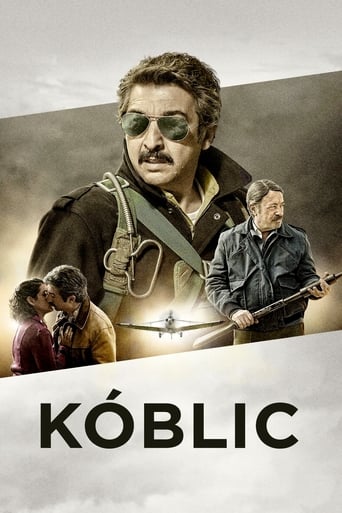
14 Apr 2016

Colonia Helena, Argentina. The mysterious Tomás Kóblic, a former Navy pilot, works as a fumigator while dealing with his dark past and the intrigues of the corrupt police commissioner…

05 Nov 2019

The island of Corsica boasts spectacular mountain vistas filled with unique wildlife. Explore the shrubland and meet moufflons, hybrid pigs and more.